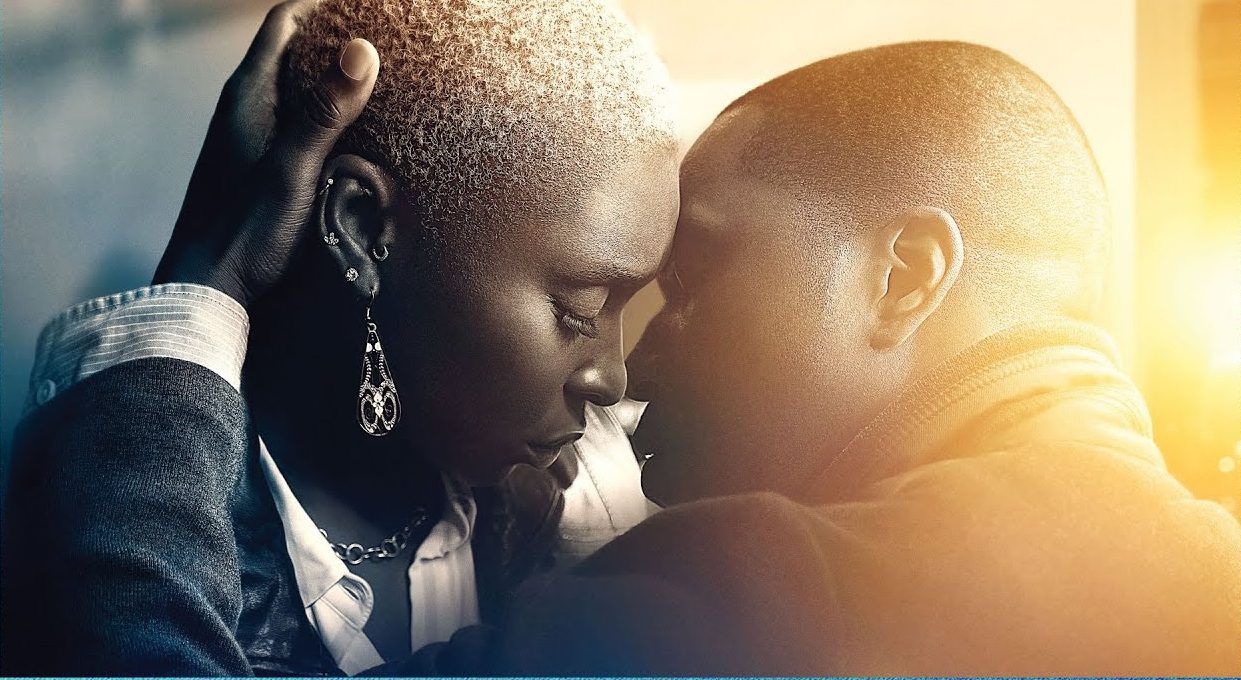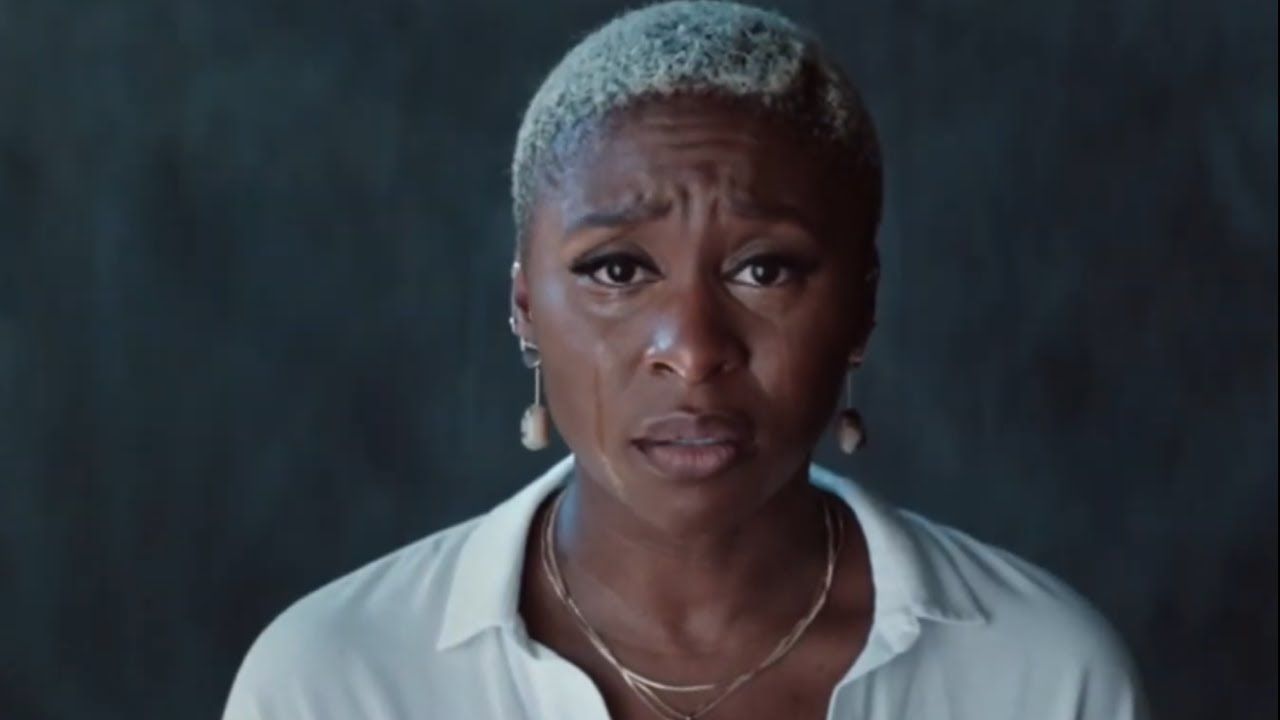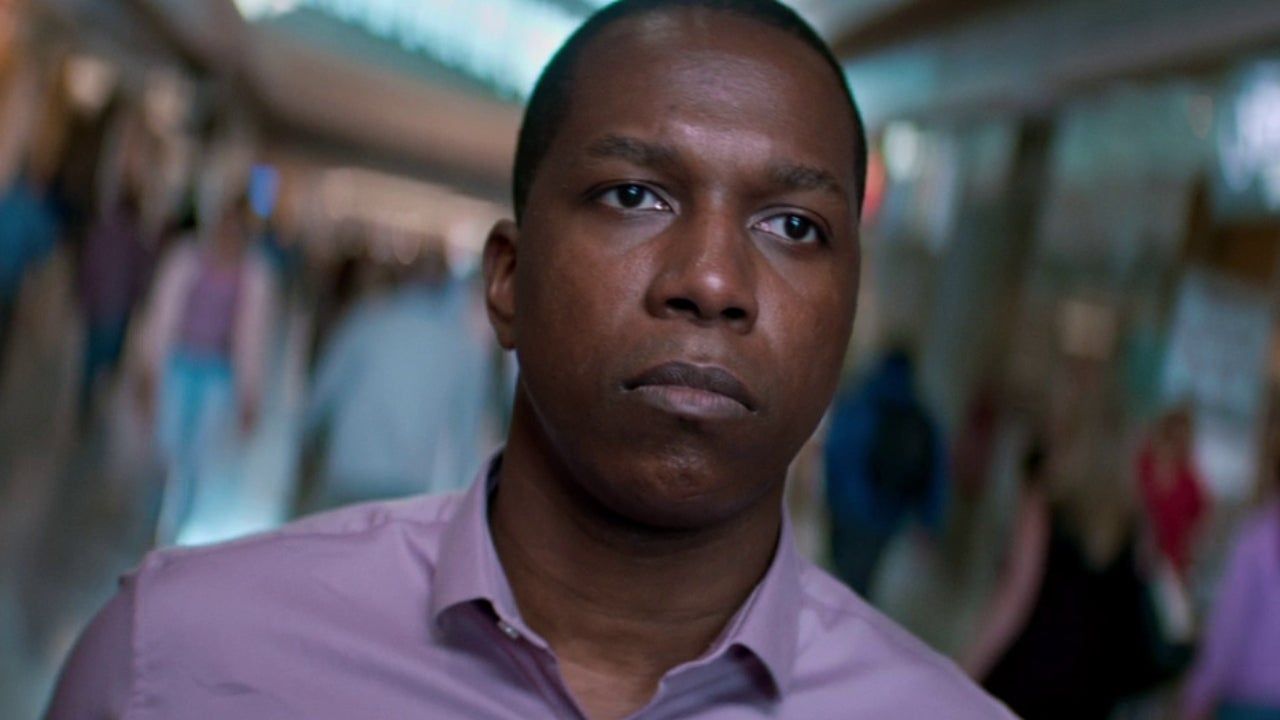While he may be best known for his pedigree in historical storytelling -- including the documentary Let It Fall: Los Angeles 1982–1992, the film Red Tails and especially the award-winning 12 Years a Slave -- writer-director John Ridley takes a hard turn in the opposite direction for his latest project: the sci-fi romance Needle In a Timestack. Following a couple's journey back to each other across time, it's safe to say you've probably never seen anything quite like it.
In a press conference attended by CBR and other outlets, Ridley shared what compelled him to make Needle in a Timestack and how Robert Silverberg's original short story inspired him. "[Silverberg's story] was a big idea in a very small package. I think the short story was 11 pages. When I was done with those 11 pages I couldn't forget it, I remembered everything about it," Ridley said. "The ease with which Mr. Silverberg dealt time travel, the richness of the characters, the complexity of the moments. I mean, just in 11 pages, talking about the differences in the effects of time travel. Sometimes you just end up in a different car -- you started the day in a Toyota, you ended it in a BMW. All of that in 11 pages, but with a level of emotionality that I, even in the most potent love stories, hadn't felt, but it wasn't saccharine."
Ridley continued, "What I appreciated about Mr. Silverberg's writing is that he didn't try to explain time travel and he didn't try to explain love. Obviously, we're not at the point of time travel yet, but there's so much technology in our lives... and it all becomes just a new facet of our lives -- it's the same with relationships. Oftentimes, we can't explain why we walk past a thousand people and they mean nothing to us, but there's that one person, there's something about them and it just sparks you. All of those elements for me, [made it] a story that I had to tell, and it was a years and years-long process. It was difficult right up to the moment that Lionsgate bought the film and we put it all together. But to be able to sit here now, to speak [about] it makes everything, all of it very, very worthwhile."
For Ridley, Silverberg's short story presented an opportunity to take a different approach to its admittedly wild premise. "I wanted to tell a mature, thoughtful story. I mean, those are the stories that I'm attracted to. I love the film Her, I loved Steven Soderbergh's Solares... they were mature stories that involve genre, but also explorations of humanity," Ridley said. "But [the most important thing] for me was to be able to tell a genre-adjacent adjacent story that's thoughtful and mature and to do it with a BIPOC cast. That's just not something you often see with us, and yet it exists. All of that, to me, made me want to tell a story that was thoughtful, that was mature in the way that it's dispensed, that respected an audience. We didn't have to rush from big moment to big moment, but [instead we] follow these lives of these characters every step of the way."
The lives and world that Needle's characters inhabit are constantly beset by literal waves of change, as the ultra-rich "jaunt" through time and make changes to history that the rest of the world just has to deal with. While time travel is nothing new to sci-fi, the challenge Ridley faced with Needle was depicting it in a way that mattered.
"When we started thinking, 'How do we represent time in any science fiction story, [let alone] one where we're operating with a limited budget? How do you represent time?'" Ridley mused. "For us, one of the things that we really landed on was that sense of fluidity. Time is always moving for us and, at least as far as we know, it's moving in one direction, but it always flows. And you can think about the moments of change and yes, maybe it's flowing in this direction, or maybe it's going into a tributary, but it flows."
Ridley continued, "So we took that idea of flow. We took the moments central to the story and really tried to build on that... When we finally go through time travel and there's the graph of the wave and there's the circle. Certainly, the [time]wave form itself -- it looks, as much as we were able to get it, like a wave, like something that's flowing. It was important to us to have that as a theme, to lay that through and then to really try to find moments for these characters where something significant is happening and there's water involved."
As a movie about relationships through and across time, many of those major moments are milestones -- positive and negative -- in the relationships between the characters. A particular sentiment is repeated throughout the film, by different characters, even in different timelines: they just want each other to be happy -- even bitter rivals like Lesilie Odom Jr. and Orlando Bloom's Nick and Tommy.
"What I took away when I read the short story [was] that there weren't bad people in this story. Orlando's character is not a bad guy. He's someone who loves someone very much. It didn't work out. He has regret. And he feels like, 'Oh, if I could go back in time, I would change that.' How many times do we feel that way?" Ridley posited. "To me, one of the motifs [of the story] is it's not that people are being bad because of their choices, but ultimately they're moments where, as [Tommy] said, 'I didn't know. Even if I only notionally remember what I did because of time traveling and the way it may change the past, all I ever wanted for this individual was happiness.'"
"In relationships, when they don't work out, it's not about somebody being bad," Ridley explained. "It would have been very easy to make Orlando the bad guy, but that to me is an easy out -- relationships are more complicated than that. Love is more complicated than that. Our lives are more complicated than that. Sometimes we look back and go, 'I never meant to hurt you. I only wanted you to be happy, but the reality is this doesn't work.'"
Though Needle takes its time and has its own measure of sadness and tragedy, Ridley suggests that the reason the film is a romance is that the cast's pursuit of happiness for each other ultimately works out. "The romantic side of me at the end [asks], 'Is everybody really happy?'" Ridley said. "Does everybody get to live happily ever after? That's not always the way it is in real life, but I wanted, at the end of this story, not just that people were rooting for this couple or this person against that person or that couple. I wanted a reality where all of us could get the things that we want. We could still end up as friends, and there is a measure of happiness."
"When we started making this movie, it was well before the pandemic, but I'm so happy that after the most difficult year we've had that one of the first stories that I'm coming out with is one where it espouses, you know what? There are better tomorrows, there's happiness. There are happy endings. Maybe it's just in Hollywood, but I'm very happy," he concluded.
Needle in a Timestack is now available in Select Theaters, on Digital and On Demand. Available on Blu-ray and DVD on Oct. 19.




